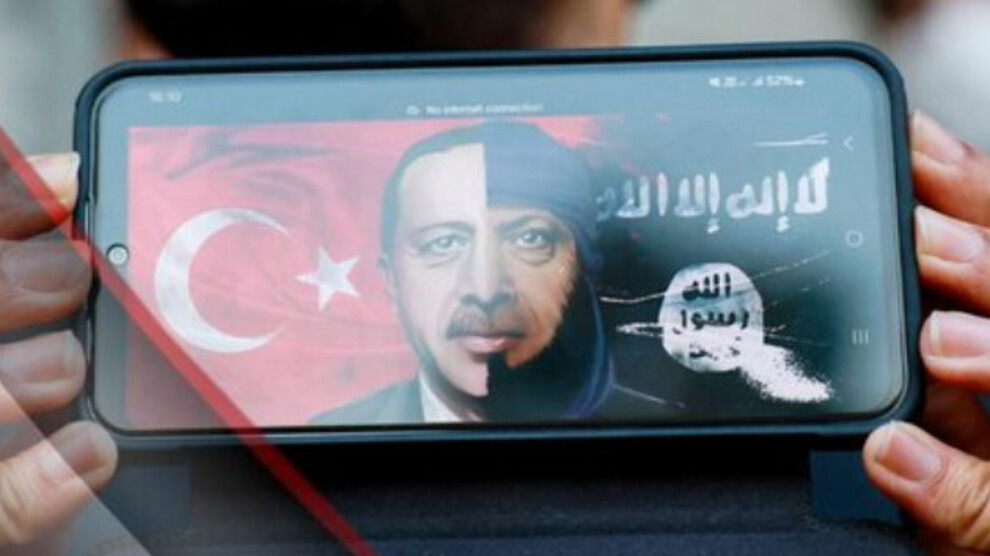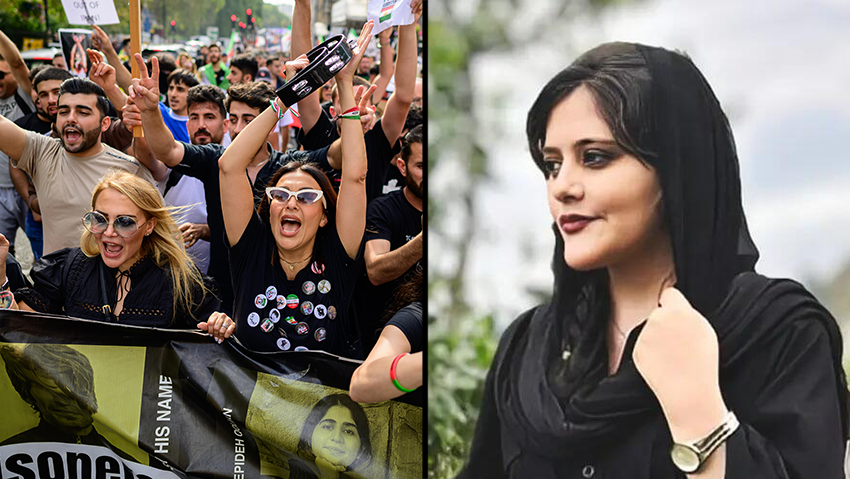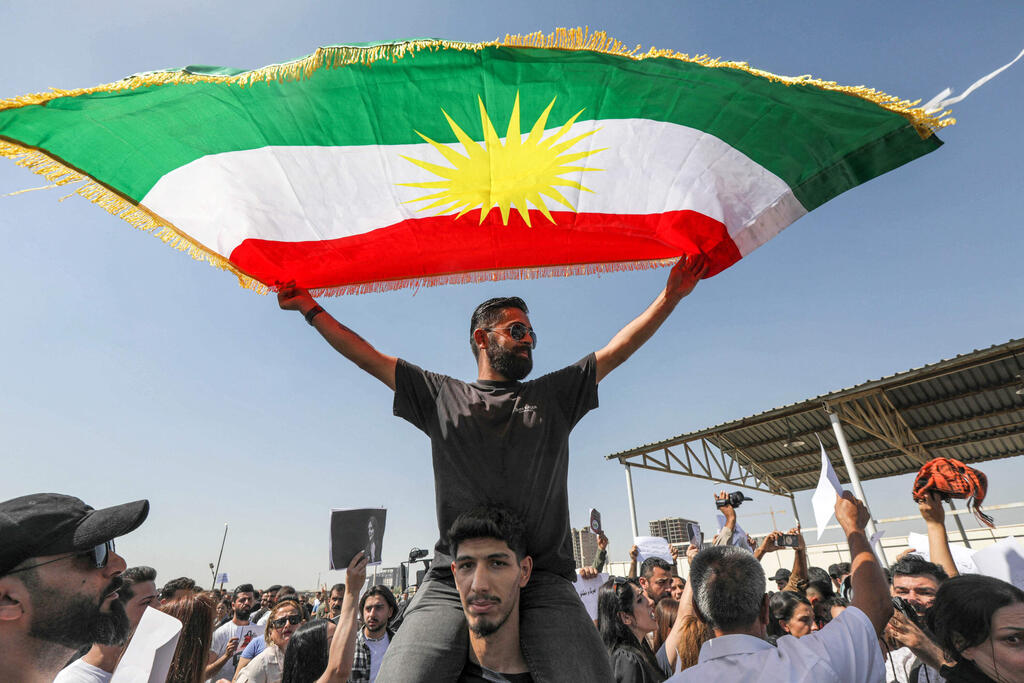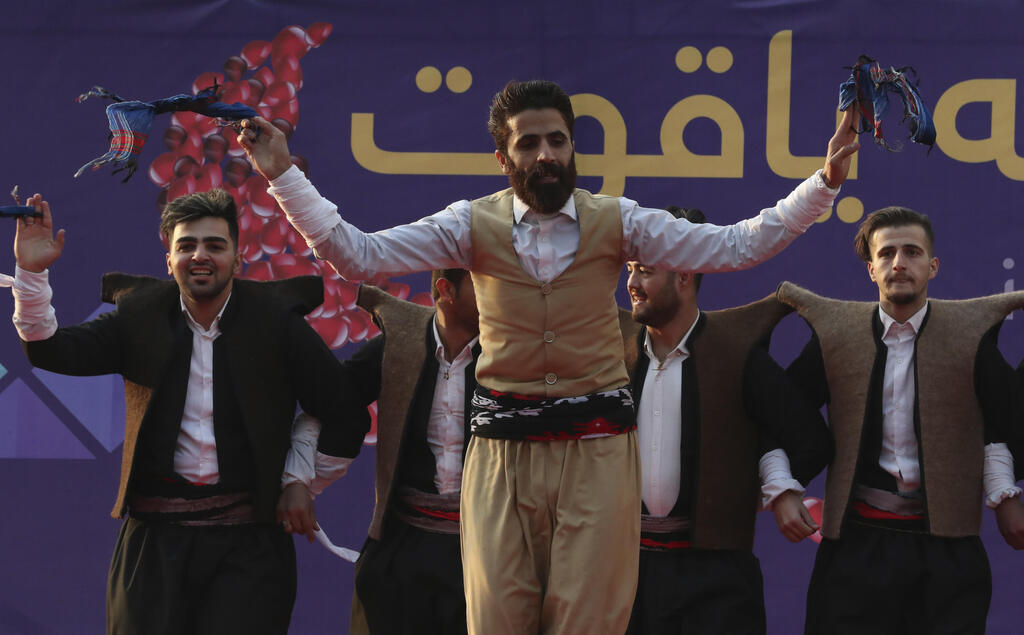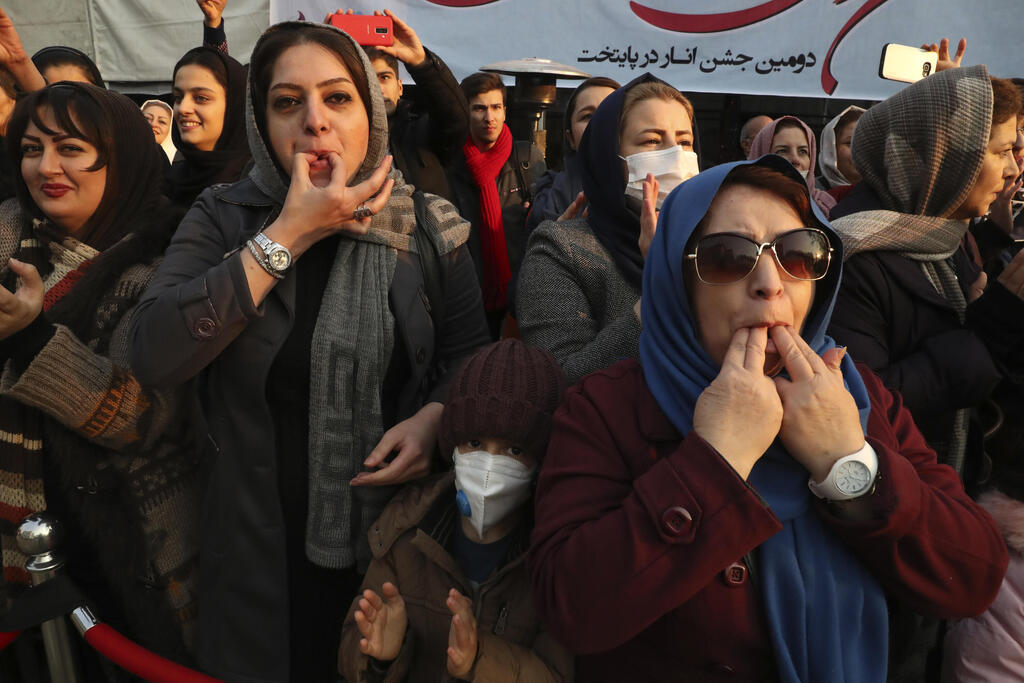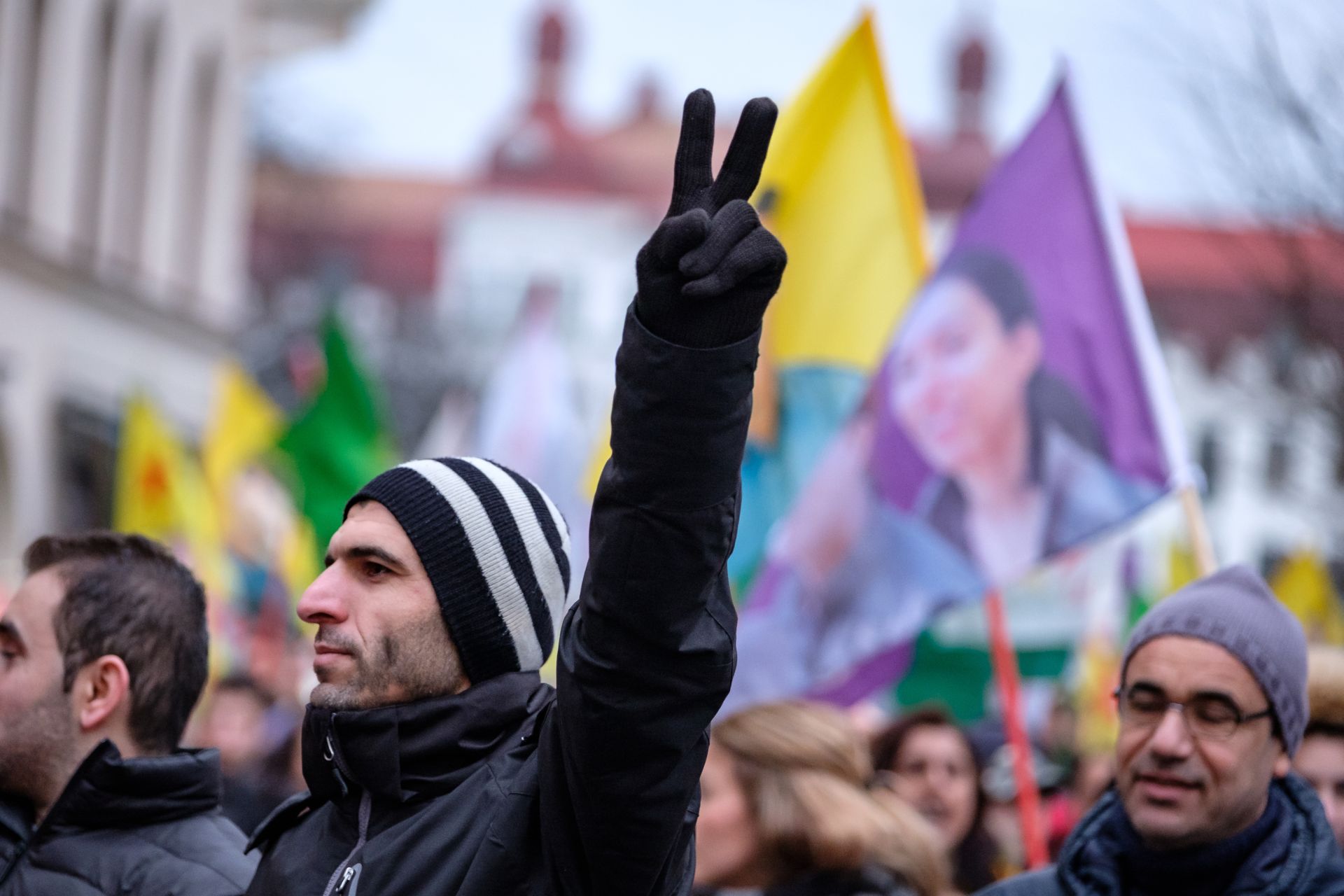Kurds wave independence-era flags during a demonstration in support of the US-backed, Kurdish-led Syrian Democratic Forces in the northeastern city of Qamishli, on Dec. 19, 2024. (DELIL SOULEIMAN/AFP via Getty Images)
GIORGIA VALENTE
12/29/2024
Kurds face oppression across the Middle East, battling for recognition and autonomy while resisting extremism, Turkey's aggression, and regional political challenges
The Kurdish people, often referred to as the largest stateless ethnic group in the world, have faced centuries of marginalization and persecution. Scattered across Turkey, Syria, Iraq, and Iran, the Kurds share a cultural, linguistic, and historical bond but remain divided by political borders imposed after World War I. In Syria, their plight has been particularly stark with decades of oppression under the Arab nationalist Baath regime.
“The Kurds are native to Turkey, Syria, Iraq, and Iran. Today, they are probably the largest ethnic group that does not have a state of its own. There are about 20 million in Turkey, 10 [million] in Iraq, 6 [million] in Iran, and 3 or 4 [million] in Syria. We do not have exact numbers. It’s all estimates,” Henri Barkey, adjunct senior fellow for Middle East Studies at CFR, said to The Media Line.
Kurds in Syria have long been treated as second-class citizens. Stripped of citizenship rights in the 1960s, many were rendered stateless and denied access to education, property ownership, and other fundamental rights.
I was perhaps one of the few Kurds who did not belong to the ruling party in Syria and still had the opportunity to work academically in Syrian universities, despite being classified as an opponent of the regime. When I earned my doctorate with distinction, the regime’s security agencies issued a secret order banning me from teaching in all public and private universities.
“I was perhaps one of the few Kurds who did not belong to the ruling party in Syria and still had the opportunity to work academically in Syrian universities, despite being classified as an opponent of the regime,” said to The Media Line, Serbest Nabi, a Syrian Kurdish political philosophy professor, currently living in Erbil, Kurdistan. However, his achievements came at a cost. “When I earned my doctorate with distinction, the regime’s security agencies issued a secret order banning me from teaching in all public and private universities,” he said.
This marginalization was rooted in the Baathist ideology, which sought to suppress ethnic diversity in favor of Arab nationalism. For Kurds, asserting their identity or demanding rights was met with suspicion and repression. “The suspicion of being an extreme Kurdish nationalist followed me everywhere and throughout my academic life,” he shared.
Many Syrian Kurds facing these issues, like Nabi, had to escape to Iraq, a country where Kurds achieved autonomy as part of a federal state. As of January 2024, the UN High Commissioner for Refugees reported that approximately 270,000 Syrian refugees were residing in Iraq, with the majority being Syrian Kurds.
I sought refuge in Iraqi Kurdistan. My family joined me here later. My children, who grew up here, know nothing about their homeland and their father’s birthplace.
“I sought refuge in Iraqi Kurdistan. My family joined me here later. My children, who grew up here, know nothing about their homeland and their father’s birthplace,” Nabi addressed.
Since the Syrian Civil War in 2011, Kurdish forces, primarily the Syrian Democratic Forces (SDF), have played a crucial role in fighting ISIS and controlling key territories in northern Syria.
“The Kurds in Syria alone have faced the culture of religious extremism and the racism of the Arab Baathist regime. Fate has forced them to confront groups like ISIS, Al-Nusra, and others with takfiri ideologies,” Barkey stated.
“The Kurds are responsible for holding 40,000 ISIS prisoners, including fighters, women, and children. If Turkey keeps pushing militias to obstacle them, these prisoners could escape, spreading across the Middle East and reigniting the ISIS threat in Syria like in the past,” he added.
SDF historically allied with the US against ISIS, but this has led to tensions with Turkey, which views the group as an extension of the PKK (Kurdistan Workers’ Party), a designated terrorist organization.
“Turkey has invaded Syrian territory controlled by the Kurds three times since 2016, shrinking Kurdish-held areas under the pretext of fighting terrorism. Turkey, a NATO member, has been attacking Kurdish forces with impunity while the US did very little to protect them. Kurds were betrayed by allies,” Barkey said.
By supporting extremist factions, like Hay’at Tahrir al-Sham (HTS), and creating proxy forces like the Syrian National Army, Ankara has sought to prevent any form of Kurdish autonomy along its borders.
Turkey is strategically afraid of Kurdish autonomy. If the Syrian Kurds negotiate something similar to Iraq’s federal structure, it raises the possibility that Turkish Kurds will demand the same. For Erdogan, this is a red line.
“Turkey is strategically afraid of Kurdish autonomy. If the Syrian Kurds negotiate something similar to Iraq’s federal structure, it raises the possibility that Turkish Kurds will demand the same. For Erdogan, this is a red line,” explained Barkey.
“Erdogan wants to bring back Ottoman thoughts—control Egypt, the Mediterranean Sea, Greece, and Cyprus. It’s all for pipelines and regional dominance, but the Kurds are an obstacle to this plan,” Juan Saadoun, a Syrian Kurd media activist currently living in Canada, said to The Media Line.
He also highlighted the hypocrisy in the West’s position these days. “The irony is that while the West normalized HTS, which originated from Al-Qaeda, they label Kurds as terrorists for past PKK ties,” he said.
Turkey’s aggression also aims to prevent solidarity between Kurds across borders. “We, along with the Kurds of Turkey, represent a shared social, cultural, and historical extension. Political borders cannot separate our common consciousness of belonging to our identity,” Saadoun noted.
He emphasized how Turkey’s proxy forces exacerbated the plight of civilians. “The Turkish-backed factions in Afrin and other areas in Syria commit atrocities, prevent families from returning, and enforce extremist practices like Jizya taxation,” he stated.
Personal stories of loss underscore the gravity of the situation and point out the fear of an ISIS comeback. “My brother Yusuf led fierce battles against ISIS and was martyred resisting the Turkish invasion in 2019 in Ras al-Ain (Sere Kaniye). My cousin, Haji, was martyred in the battles to liberate Raqqa from ISIS. We must prevent this from happening again,” Nabi shared.
Despite these challenges, the Kurds remain resilient, united by a shared vision for self-determination. “The Kurdish tragedy cannot continue in this manner. A solution must transcend the colonial-imposed borders of the Middle East after World War I to ensure the rightful place of the Kurds in this geography,” Barkey stated.
We want a federal region, like the Kurdistan region in Iraq. We want safety and protection for Alawites, Druze, and other minorities as well.
Saadoun shared this view: “We want a federal region, like the Kurdistan region in Iraq. We want safety and protection for Alawites, Druze, and other minorities as well.”
Yet, achieving this dream is fraught with obstacles. “I aspire to return to my country and participate in political life,” Nabi said. “However, I find it very difficult to return to a country ruled by an Islamic political-religious movement. I will most likely be on the side of the opposition, continuing to confront any tendency toward establishing a tyrannical religious authority in Syria.”, he claimed.
The Kurdish struggle for recognition, equality, and safety continues, a testament to their enduring spirit in the face of adversity. As Nabi pointed out, “The current situation requires resilience and global solidarity. Without it, the Kurds will remain caught in a cycle of war and marginalization, their sacrifices overshadowed by regional and international politics.”

